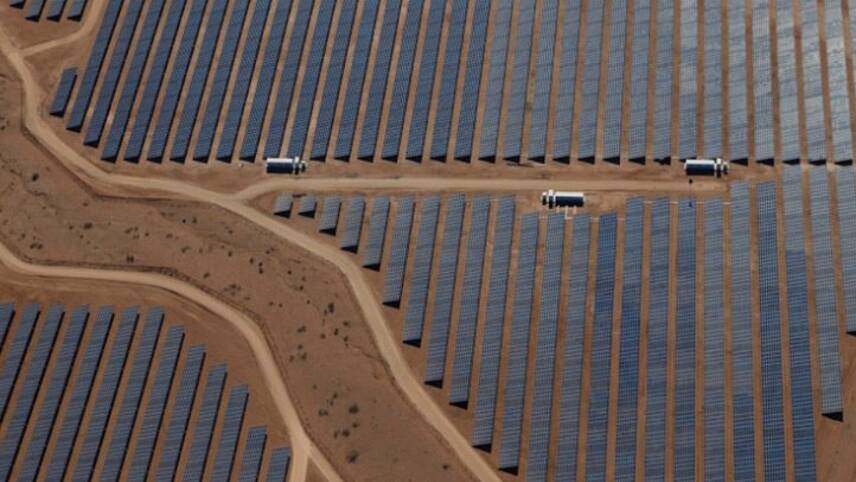Register for free and continue reading
Join our growing army of changemakers and get unlimited access to our premium content

Google's new deals span across Texas
Ingka Group revealed today (19 September) that it has invested a total of almost €2.5bn in onsite and offsite wind and solar power to date, as Ikea strives to meet its overarching 2030 goal of becoming ‘climate positive’.
The most recent of these investments was €151m for an 80% stake in turbine maker Vestas’ wind portfolio in Romania, comprising seven industrial-sized wind farms.
According to Ingka Group, which has operations in 30 countries, this investment will mean that the retailer is now generating more renewable energy than it consumes – ahead of its ambition to reach this milestone by the end of 2020.
The Group’s installed renewable energy capacity now stands at more than 1.7GW, comprising 534 wind turbines in 14 countries and 920,000 onsite solar modules.
To build on this progress, the firm has pledged to source 100% renewable electricity in its retail operations by 2025 and to shift all of its heating and cooling away from fossil fuels by 2030.
“We have invested heavily in wind and solar over the past decade because it makes our business stronger,” Ingka Group’s chief executive Jesper Brodin said.
“We are excited that our actions have resulted in us exceeding an important milestone on the Ikea journey to become climate positive. We hope to send a clear message that renewable energy is a great investment today and that what is good for business is also good for the planet.”
Ingka Group’s chief sustainability officer Pia Heidenmark Cook added that the company’s mission now, after “already coming a long way”, will be to “accelerate a global transition to renewable energy”.
In this space, the company is lobbying governments to set enabling policies for businesses wishing to invest in onsite generation and power purchase agreements (PPAs). It is also offering its ‘solar home’ products and services in seven markets, with plans to roll this offering out across its other 23 markets by 2025.
Searching for solar
In related news, Google has this week made what it claims is the biggest corporate purchase of renewable energy in human history.
The purchase package consists of 18 energy deals which, collectively, will increase Google’s global clean energy portfolio by 40%. Among the deals are agreements to purchase energy from 720 MW of solar farms across the US and 793 MW of solar and wind farms across mainland Europe. Additionally, Google will add 125 MW of renewable generation capacity to the grid that supplies its Chilean data centre.
Google claims that each of these projects meets its criteria on additionality for energy purchasing. This criteria requires the business to make long-term purchase commitments which result in the development of new projects, rather than buying from existing facilities.
“Over the years, we’ve worked hard to reduce the carbon footprint of our operations, build products with people and planet in mind and drive change at scale through our supply chains,” Google’s chief executive Sundar Pichai said.
“A cornerstone of our sustainability efforts is our commitment to clean energy. We’ve been a carbon-neutral company since 2007. In 2017, we became the first company of our size to match our entire annual electricity consumption with renewable energy – and then we did it again in 2018. As a result, we became the largest corporate buyer of renewable energy in the world.
“Today we’re taking another big step by making the biggest corporate purchase of renewable energy in history.”
According to Bloomberg New Energy Finance’s (BNEF) latest Corporate Energy Outlook, US-based corporates collectively signed contracts for 5.95 GW of renewable energy in the first half of 2019, compared to 6.2GW during the whole of 2018. This means that the country accounted for 69% of all activity during this period, with Google among the largest purchaser, along with the likes of Facebook, Target and Nike.
Sarah George


Please login or Register to leave a comment.